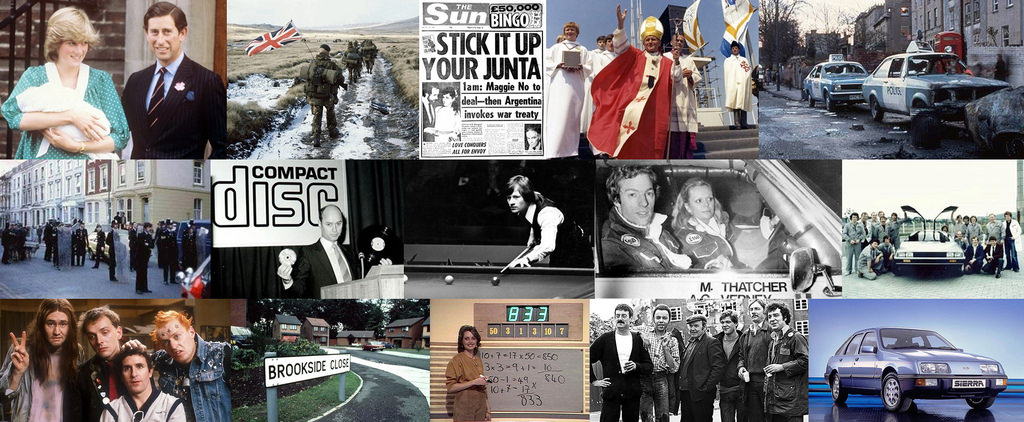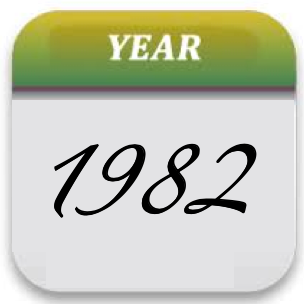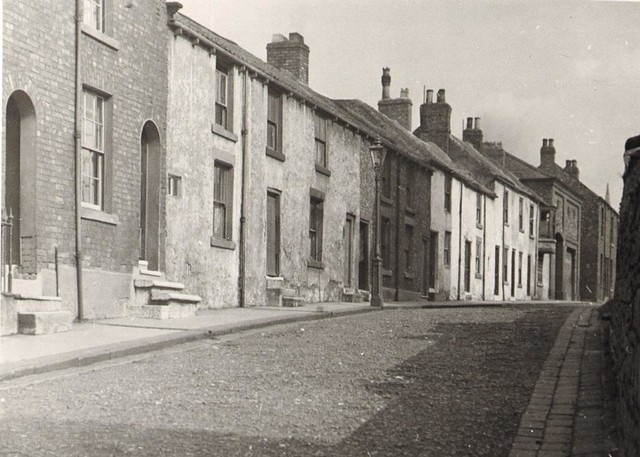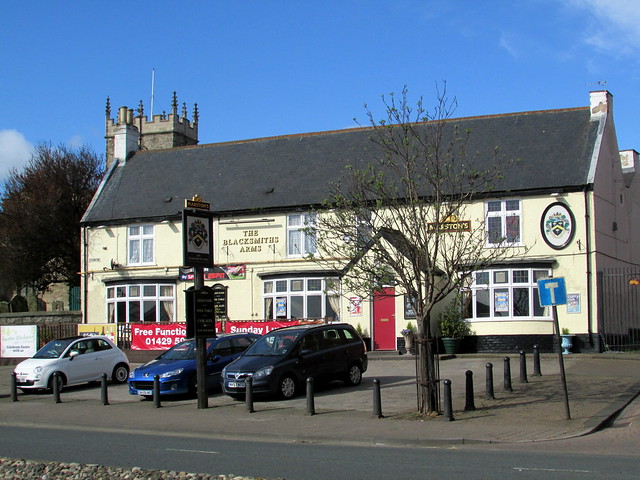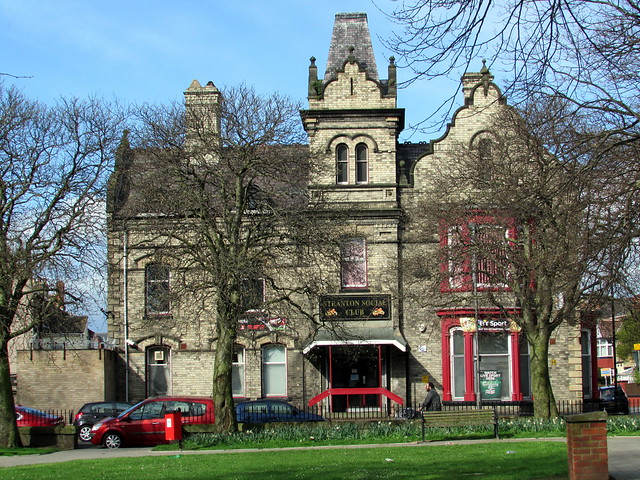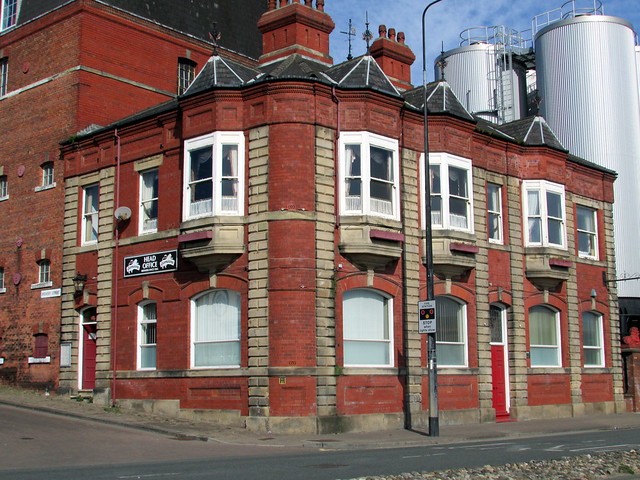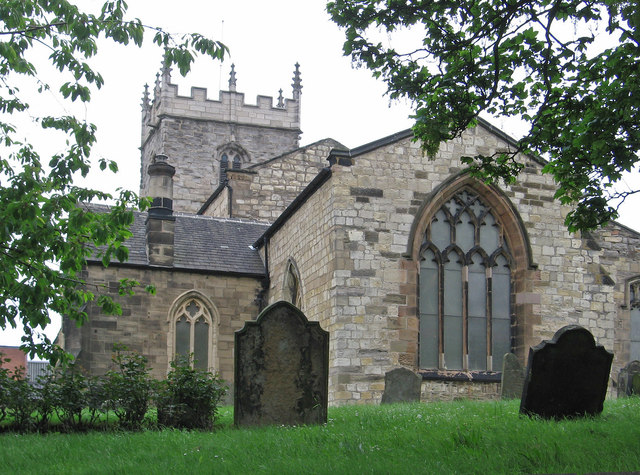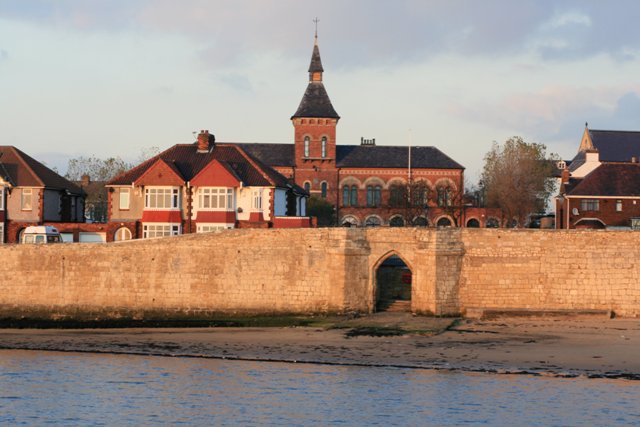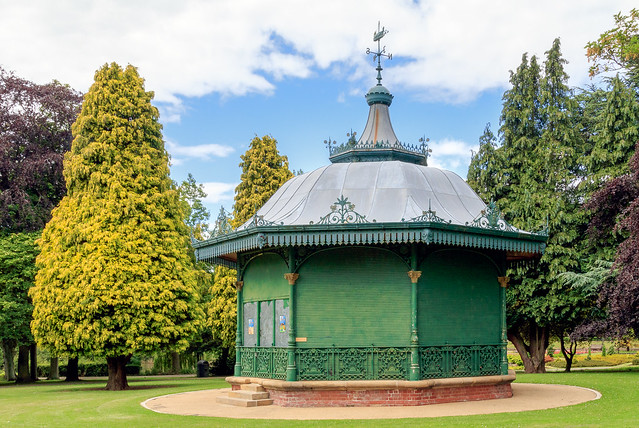That Was the Year That Was - 1982

-
Description
1982 New technology continues to change our buying habits with smaller and cheaper electronic gadgets appearing including the first CD player and a new industry is just beginning with the use of Genetic Engineering human insulin produced by bacteria is sold for the first time. On the world stage Argentina invades the Falkland Islands and Argentina and the UK go to war over a small island thousands of miles away. After many reports of Whales becoming and endangered species the International Whaling Commission decides to end commercial whaling, and a major recession hits the United States. The number of people out of work in Britain has risen above three million for the first time since the 1930s. The official jobless total, announced today, is 3,070,621. It means one in eight people is out of work. Pope John Paul II travelled to the UK in 1982 for a six-day tour during which he greeted and blessed thousands of people at 16 different venues. It was the first time that a pope had visited Britain in more than 400 years. Prince William is born. Christened Prince William Arthur Philip Louis of Wales by the Archbishop of Canterbury, the young prince is the second in line to the throne after his father Prince Charles. 1982. It was a year of bad hair, big movies and war On 2 April 1982, Argentina invaded the Falkland Islands, a remote UK colony in the South Atlantic. The move led to a brief, but bitter war. Argentina's military junta hoped to restore its support at a time of economic crisis, by reclaiming sovereignty of the islands. It said it had inherited them from Spain in the 1800s and they were close to South America. The UK, which had ruled the islands for 150 years, quickly chose to fight. Prime Minister Margaret Thatcher said the 1,800 Falklanders were "of British tradition and stock". A task force was sent to reclaim the islands, 8,000 miles away. In the fighting that followed, 655 Argentine and 255 British servicemen lost their lives, as did three Falkland Islanders. 1980 Rioting breaks out in the district of St Pauls, Bristol 'St Paul’s is an area to which black people from all over the city come for parties, shebeens (illegal drinking clubs) and to play ludo, dominoes and pinball machines at the Black and White Café, the premises where the spark for the riot was lit. They come because there is nowhere else to go. Much of the activity is perfectly lawful and, even where it is not, it involves behaviour such as illicit drinking and cannabis-smoking which does other people no harm. If the district is the focus for black social life in the city, the Black and White Café in Grosvenor Road, the ‘frontline’, is its nerve centre. When the riot broke out, it was the only black café (it,is in fact run by a black and white husband—and-wife team) which had not been forced out of business for contravening local authority health regulations or for similar reasons. But it had had its licence to sell alcohol removed. A seedy joint created out of the ground floor of a terraced house, the café was of great importance to the black community. It was the only bit of territory they had left and they were prepared to fight for the right to do what they liked there... What brought hundreds of black and eventually white Bristolians up against the law on 2 April, 1980, a day when the schools closed at midday, was a police raid on the Black and White Café. This had happened many times before but serious violence had never broken out though it had in London in connexion with the Mangrove and Carib clubs). On the Second, as the occasion become known, thirty-nine policemen armed with search warrants for drugs and illegal consumption of alcohol moved in; the majority were to go into the café and the rest were to be held in reserve... What they could not have known was that tension was high in the Black and White that day. There was much talk about a St Paul’s youth who had been arrested on ‘sus’ in London and was appearing in court the following day. Young blacks were angry about the ‘police harassment’ and talked of going to London to protest. At about 3.30 p.m. the officers, the drugs squad in plain clothes and the rest in uniform, raided the café. They searched the place and questioned the twenty customers, searching some of them as well. Bertram Wilks, the café’s owner, was arrested and taken away in handcuffs, protesting loudly, to be charged with possessing cannabis and allowing it to be smoked on his premises. The police found large quantities of alcohol, including brandy, vodka and 132 crates of beer which they proceeded to load into a van in front of a growing crowd outside. The loading took a long time because there was so much liquor. As each crate was humped into the van, the crowd grew more restless, and when the van left a bottle was thrown, but there was no real violence as yet. A man complained that his trousers had been torn by a police officer in the café, an allegation which was later canvassed as the reason for the riot, and drugs squad officers made a run for it clutching their booty. This was what really seemed to annoy the crowd. ‘Let’s get the dope, let’s get the drugs squad,’ they are reported to have shouted. Missiles were thrown in earnest at a police car and at officers, and the riot had begun. The violence spread quickly: officers outside the café took refuge inside under a steady hail of bricks, bottles and stones from the crowd of black and white youths which had grown to about 150 (others were looking on) on the grassy area opposite. The police radioed for help and at about 5.30 p.m., two hours after the raid began, reinforcements arrived, assembling down one end of Grosvenor Road and marching down the road to rescue their besieged colleagues. This was a hazardous operation, with officers coming under a terrific barrage and being forced to take cover under crates and behind dustbins. It was the start of the really serious violence. As a black prostitute told the Sunday Times: ‘They came down the road, left right, left right, like they were on parade. They had dogs with them. When they came in front of the café, we let them have, it.’ The mistake the police may have made was to try to impose control with too few men. The marching column contained only 100 police and, on this interpretation, was a positive incitement to the angry crowd.,, Defence counsel at the riot trial months later suggested that the police had provoked the crowd by their military- style tactics. The police said, in turn, that they hoped this show of strength would disperse the crowd. It did no such thing'. 'In the early 1980s competing ‘crews’ like The Wild Bunch (who later became Massive Attack), 2Bad, City Rockers, UD4 (Roni Size’s brother) and FBI Crew were battling it out on home-built speaker systems, modelled after those in Jamaica in the Caribbean. The Wild Bunch became legendary for their much-attended parties at which their music sets combined punk, reggae and Rhythm and Blues. They played at local events, such as St Pauls Carnival and in disused or empty buildings in or close to the St. Pauls area. After the St. Pauls riots in 1980, the police avoided the area, which made such gigs possible'. 1982: Laker Airways goes bust Pioneering budget airliner Laker Airways has collapsed owing £270 million to banks and other creditors. After a four-hour board meeting at London's Gatwick Airport, company chairman Sir Freddie Laker asked Clydesdale Bank to appoint a receiver. All 17 Laker aircraft have been ordered to return to the UK by tonight and the British Airports Authority has impounded a DC10 at Gatwick to cover the company's landing and parking costs. Thousands of pounds poured into a "Save Laker"fund, set up by members of the public sympathetic to the flamboyant tycoon. But it was too little too late. Within weeks Sir Freddie was attempting to re-launch an airliner by transferring the Laker Airways licences to a new company. The Civil Aviation Authority officially blocked his efforts in May after objections from other airlines and the public. Twelve months later Laker's American liquidators launched a billion-pound lawsuit against several airlines and US aircraft manufacturer McDonnell Douglas alleging conspiracy and violation of the anti-trust laws. Freddie Laker retired to Florida, then the Bahamas. He died in Miami aged 83 on 10 February 2006. Other News It was a great year for the Irish – Alex Higgins won the World Snooker Championship, Northern Ireland beat hosts Spain in the football World Cup and Ireland won rugby’s Triple Crown for the first time since 1948. A computer virus, called ‘Rother J’, was released into ‘the wild’ for the first time. Atari released E.T. the Extra-Terrestrial, the biggest flop in video game history. Time magazine’s Man of the Year was: the computer. The first CDs are released in Germany. 1982 Timeline 1 January - ITV launches three regional TV stations - Central, TV South and TV South West. 2 January - The Welsh Army of Workers claims responsibility for a bomb explosion at the Birmingham headquarters of Severn Trent Water. 10 January - The lowest ever UK temperature of -27.2°C is recorded at Braemar, in Aberdeenshire. This equals the record set in the same place in 1895, and the record will be equalled again at Altnaharra in 1995. 11 January - Mark Thatcher, son of the British Prime Minister Margaret Thatcher, disappears in the Sahara during Paris-Dakar rally. 14 January - Mark Thatcher is found safe and well in the Sahara Desert, six days after going missing. 21 January - Miners vote against strike action and accept the National Coal Board offer of a 9.3% pay rise. 26 January - Unemployment in the United Kingdom is recorded at over 3 million for the first time since the 1930s. However, the 11.5% of the workforce currently unemployed is approximately half of the record percentage which was reached half a century ago. 30 January - 1980 St. Pauls riot: Rioting breaks out in the district of St Pauls, Bristol. 1 February - Sales of tabloid newspapers are reported to have been boosted substantially since last summer by the introduction of bingo. The Sun has reportedly enjoyed the biggest rise in sales, now selling more than 4 million copies per day on a regular basis. 5 February - Laker Airways collapses, leaving 6,000 passengers stranded, with debts of £270 million. 6 February - The Queen celebrates her Pearl Jubilee. 12 February - Opening of first Next clothing store, a rebranding of the merged Joseph Hepworth and Kendall chains masterminded by George Davies. It specialises in women's clothing. 19 February - The DeLorean Car factory in Belfast is put into receivership. 22 February - The Apostolic Delegation is promoted to the Apostolic Nunciature to Great Britain by Pope John Paul II; the first pro-nuncio is Bruno Heim. 23 February - The Glasgow-registered coal ship St. Bedan is bombed and sunk by an IRA unit driving a hijacked pilot boat in Lough Foyle. 25 February - The European Court of Justice rules that schools in Britain cannot allow corporal punishment against the wishes of parents. 27 February - The D'Oyly Carte Opera Company gives its last performance at the end of a final London season, having been in near-continuous existence since 1875. 3 March - The Queen opens the Barbican Centre, a performing arts venue in the City of London. 12 March - Closure of Queen Street Mill, Burnley, the last steam driven weaving shed to work commercially. 18 March - A legal case brought by Mary Whitehouse against the National Theatre concerning alleged obscenity in the play The Romans in Britain ends after the Attorney General intervenes. An Argentine scrap metal dealer raises the Argentine flag in South Georgia, Falkland Islands - a British colony. 19 March - Argentines land on South Georgia Island, precipitating war. 25 March - Roy Jenkins wins the Hillhead by-election in Glasgow for the Social Democratic Party, whose dream of an electoral breakthrough looks strong as they still head most of the opinion polls. 26 March - The first test tube twins are born, in Cambridge. 29 March - Royal Assent in London to the Canada Act 1982 sets the stage for the repatriation of the Canadian Constitution (see 17 April below). 1 April - A 12-year-old unnamed Birmingham boy becomes one of the youngest people in England and Wales to be convicted of murder after he admits murdering an eight-year-old boy, and is sentenced to be detained indefinitely. 2 April - Falklands War begins as Argentina invades the Falkland Islands. 4 April - Falklands War: The British Falkland Islands government surrenders, placing the islands in Argentine control. 5 April - Falklands War: Royal Navy task force sets sail to the Falklands from Portsmouth. 7 April - Britain declares a 200-mile "exclusion zone" around the Falklands. 17 April - By Proclamation of the Queen of Canada on Parliament Hill, Canada repatriates its constitution, granting full political independence from the United Kingdom; included is the country's first entrenched bill of rights. 21 April - Walsall F.C.'s hopes of becoming the first Football League club to ground-share are dashed when officials condemn their plans to sell their Fellows Park stadium and become tenants at the Molineux (home of Wolverhampton Wanderers). 24 April - Eurovision Song Contest is held in Harrogate, Yorkshire where it was won by Germany. The first British serviceman dies in the Falklands conflict, when his Sea King helicopter crashes. 25 April - Falklands War: Royal Marines recapture South Georgia. 30 April - The Conservatives have returned to the top of the opinion polls for the first time since late 1979, with the latest MORI poll showing that they have 43% of the vote, ahead of the SDP-Liberal Alliance. 1 May - Falklands War: Operation Black Buck- A Royal Air Force Vulcan bomber takes off from Ascension Island and bombs Port Stanley Airport. 2 May - Falklands War: The nuclear submarine HMS Conqueror sinks the Argentine cruiser General Belgrano. 4 May - Falklands War: The Type 42 Destroyer, HMS Sheffield, is badly damaged by an Exocet missile. It sinks on 10 May. 21 May - Falklands War: Royal Marines and paratroopers from the British Task Force land at San Carlos Bay on the Falkland Islands and raise the Union Jack. The Haçienda nightclub opens in Manchester. 22 May - FA Cup holders Tottenham Hotspur draw 1-1 with Queen's Park Rangers in the Wembley final, forcing a replay. 23 May - Falklands War: HMS Antelope of the Royal Navy explodes. 26 May - Official opening of Kielder Water, a reservoir in Northumberland. It is the largest artificial lake in the UK by capacity (200 billion litres) and is surrounded by Kielder Forest, the largest planted woodland in Europe. 27 May - Tottenham Hotspur win the FA Cup beating Queens Park Rangers 1-0 in a replay. A sixth-minute penalty from Glenn Hoddle is the only goal of the game. 28 May - Pope John Paul II's visit to the United Kingdom, the first by a reigning pope, begins at Gatwick Airport; he later meets the Queen in London. Falklands War: Battle of Goose Green opens, the first land battle of the war. Lieutenant-Colonel H. Jones is killed in an action for which he is awarded a posthumous Victoria Cross. British troops reach Darwin, Falkland Islands. Tottenham Hotspur equal Aston Villa's record of seven FA Cup triumphs by beating Queens Park Rangers 1-0 in the final replay. 29 May - Pope John Paul II's visit to the U.K.: Pope John Paul II visits Canterbury, the first time a pontiff has done so. Falklands War: Battle of Goose Green concludes when British paratroopers defeat a larger force of Argentine troops. 31 May - Falklands War: The Battle of Stanley is fought. June - All restrictions on hire purchase lifted. 3 June - The Israeli ambassador to the UK, Shlomo Argov, is shot outside the Dorchester Hotel. 8 June - U.S. President Ronald Reagan becomes the first American chief executive to address a joint session of Parliament. Falklands War: 48 UK servicemen are killed when two supply ships are bombed by Argentine air strikes off Bluff Cove. 14 June - Falklands War ends as British forces reach the outskirts of Stanley after "yomping" across East Falkland from San Carlos Bay. They arrive to find the Argentine forces flying white flags of surrender. A formal surrender is agreed that day. 16 June - Welsh miners go on strike to support health workers demanding a 12% pay rise. 19 June - The body of "God's Banker", Roberto Calvi, chairman of Banco Ambrosiano, is found hanging beneath Blackfriars Bridge in London. 21 June - The first child of The Prince and Princess of Wales is born at St Mary's Hospital, London (Paddington), the first birth in direct line of succession to the British throne to take place in hospital. 22 June - A British Airways Boeing 747 suffers a temporary four-engine flameout and damage to the exterior of the plane, after flying through the otherwise undetected ash plume from Indonesia's Galunggung. 23 June - Support for the Conservative government continues to rise, mainly due to the success of the Falklands campaign, with an MORI opinion poll showing that they have a 51% approval rate. 2 July - Roy Jenkins is elected leader of the SDP. 5 July - England draw 0-0 with hosts Spain and are eliminated from the World Cup in the second group stage. Ron Greenwood retires as England manager after five years and is succeeded by Ipswich Town manager Bobby Robson. 9 July - Michael Fagan breaks into Buckingham Palace and spends 10 minutes talking to the Queen until he is apprehended. 20 July - Hyde Park and Regents Park bombings: The Provisional IRA detonates two bombs in central London, killing 8 soldiers, wounding 47 people, and leading to the deaths of 7 horses. 21 July - HMS Hermes, the Royal Navy flagship during the Falklands War, returns home to Portsmouth to a hero's welcome. 22 July - Production of the Ford Cortina ends after 20 years and five incarnations (the final two of which were virtually identical). The Cortina's successor, the Sierra, will be built at Dagenham and in Belgium, though in slightly lower volumes as the smaller Escort is now Ford's strongest-selling car. Exclusion zone around the Falklands is lifted. Margaret Thatcher rejects calls in parliament for a return of the death penalty for terrorist murder. 1 August - The government creates Britoil, successor organisation to the British National Oil Company. 4 August - The first child of The Prince and Princess of Wales is christened William Arthur Philip Louis. 29 August - 65-year-old American Ashby Harper becomes the oldest person to swim the English Channel. 30 August - St David's Hall opens in Cardiff as the National Concert Hall and Conference Centre of Wales. 7 September - Margaret Thatcher expresses her concern at the growing number of children living in single parent families, but says that she is not opposed to divorce. 22 September - An estimated 14% of the workforce is now reported to be unemployed. 23 September - Nigel Lawson announces that no industry should remain in state ownership unless there is an "overwhelming" case. 28 September - General Motors launches the Spanish built Opel Corsa, which will be sold in Britain from April next year as the Vauxhall Nova. The new front-wheel drive range of small hatchbacks and saloons will effectively replace the Chevette. However, the transport workers union has thrown the future of the new car, which is expected to sell around 50,000 units a year, into jeopardy by blocking imports to Britain. 30 September - Lord Denning delivers his last judgement as Master of the Rolls. October - Government statistics for unemployment are now based on those claiming benefit rather than those registered unemployed. 8 October - With the economy now climbing out of recession after more than two years, Margaret Thatcher vows to stick to her economic policies, and blames previous governments for the decline that she inherited when taking power more than three years ago. 11 October - The Mary Rose, flagship of Henry VIII of England that sank in 1545, is raised from the Solent. 12 October - A victory parade is held in London to mark the end of the Falklands war. 15 October - The Ford Sierra is launched as replacement for the long-running Cortina, and its ultra-modern aerodynamic styling causes controversy among potential buyers who for years had been drawn to the conventional Cortina. 21 October - Sinn Féin win first seats on Northern Ireland Assembly, with Gerry Adams winning the Belfast West seat. 27 October - Three RUC officers killed by an IRA bomb near Lurgan in Northern Ireland. November - The government announces that more than 400,000 council houses have been sold off under the right-to-buy scheme in the last three years. 1 November - The Welsh language television station, S4C, launches in Wales. Opinion polls show the Conservatives still firmly in the lead, suggesting that a general election will be held by next summer. 2 November - The fourth terrestrial television channel, Channel 4, begins broadcasting, the first programme broadcast being the game show Countdown, hosted by Richard Whiteley. Another flagship programme is the Liverpool-based soap opera Brookside. 7 November - The Thames Barrier is first publicly demonstrated. 12 November - Express Lift Tower in Northampton officially opened. 15 November - Unemployment remains in excess of 3 million - 13.8% of the workforce. 28 November - Opinion polls show the Conservative government with an approval rating of up to 44% and well on course for a second successive election win, 13 points ahead of Labour. Support for the Alliance has halved in the space of a year. 30 November - A letter bomb sent by Animal rights activists explodes in 10 Downing Street, with packages sent to the leaders of the other political parties. One member of Downing Street staff is burnt. 3 December - UK release of film Gandhi. This will win eight Academy Awards, including Best Picture, Best Director (Richard Attenborough) and Best Actor (Ben Kingsley) (11 April 1983). UK release of film animation The Plague Dogs based on the novel of the same name by Richard Adams. But the film is the most controversial could contain some scene violence. 10 December - British chemist Aaron Klug wins the Nobel Prize in Chemistry "for his development of crystallographic electron microscopy and his structural elucidation of biologically important nucleic acid-protein complexes". John Robert Vane wins the Nobel Prize in Physiology or Medicine jointly with Sune Bergström and Bengt I. Samuelsson "for their discoveries concerning prostaglandins and related biologically active substances". 12 December - Greenham Common Women's Peace Camp: 30,000 women hold hands and form a human chain around the 14.5 km (9 mi) perimeter fence. 15 December - The British colony of Gibraltar gains a pedestrian link to Spain, as the gates which separated the two states are re-opened by the Spanish government after 13 years. 23 December - More than 1,200 jobs are lost in the West Midlands when the Round Oak Steelworks closes after 125 years. Inflation has fallen to a 10-year low of 8.6%, although some 1,500,000 jobs have reportedly been lost largely due to Government policy in attaining this end. British National Oil Corporation privatised as Britoil. Alternative rock band The Smiths formed in Manchester by Johnny Marr and Morrissey. Television 1 January – Central Independent Television starts broadcasting in the English Midlands, replacing ATV. Also, TVS starts broadcasting to the South and South East of England, replacing Southern, and TSW starts broadcasting to the South West England, replacing Westward. February - The first-ever 3D broadcast in the UK is screened by Television South. The programme includes excerpts of test footage shot by Philips in the Netherlands. Red/green 3D glasses were given away free with copies of the TV Times listings magazine, but the 3D sections of the programme were shown in monochrome. 5 March – The BBC is given permission by the Government to start broadcasting television programmes on two satellite channels from early 1986. Ultimately, however, the channels were not launched. 2 April – The Falklands War begins as Argentina invades the Falkland Islands. 24 April – The 27th Eurovision Song Contest is held in Harrogate, North Yorkshire. The contest is presented by Jan Leeming and won by Germany's Nicole with Ein bißchen Frieden. 26 April – "The Satellite Channel" is launched. In 1984 it is renamed Sky Channel after it is purchased by Rupert Murdoch and in 1989 it becomes known as Sky One. Today it is named Sky1. 14 June – The Falklands War ends after Argentina surrenders. 26 July – Alasdair Milne succeeds Ian Trethowan as Director-General of the BBC. 10 October – Boys from the Blackstuff premieres on BBC2 (last episode was shown on 7 November). 1 November – S4C, the first Welsh language TV service is launched. 2 November – Channel 4 starts broadcasting in the UK at 4:45pm. The first programme shown is the game show Countdown, which, barring the news, is the only programme from the launch night that is still running today. The first ever episode of Brookside is broadcast. The program can be seen on Tuesdays and Wednesdays at 8:00pm. 5 November – Debut of Channel 4's innovative music programme The Tube. 2 December - 10.2 million viewers saw a classic comedy scene from the Only Fools And Horses episode A Touch Of Glass in which the Trotters accidentally smash a priceless chandelier. December - ITV conducts a national 3D experiment, with red/blue glasses allowing colour 3D to be shown for the first time. The programme, an episode of the weekly science magazine The Real World (produced by TVS) is shown on a weekday evening, and repeated that weekend on Sunday afternoon, followed by a rare screening of the Western Fort Ti starring George Montgomery and Joan Vohs. Film E.T. the Extra-Terrestrial dominated the box office. Star Trek II: The Wrath Of Khan, An Officer And A Gentleman and Blade Runner were also released. Angelina Jolie made her film debut in Lookin’ To Get Out alongside her father, Jon Voight. BBC1 16 April – Odd One Out (1982–1985) 4 May – Wogan (1982–1992) 4 September – The Late, Late Breakfast Show (1982–1986) 2 October – Saturday Superstore (1982–1987) 30 December – 'Allo 'Allo! (1982–1992) BBC2 1 September – Timewatch (1982–present) 10 October – Boys from the Blackstuff (1982) 9 November – The Young Ones (1982–1984) ITV 2 January No. 73 (1982–1988) O.T.T. (1982) 4 January – Let's Pretend (1982–1988) 8 January – Shine on Harvey Moon (1982–1985, 1995) 16 February – On Safari (1982–1985) 16 April – The Bounder (1982–1983) 9 June – Andy Robson (1982–1983) 25 October – Harry's Game (1982) 30 October – The Saturday Show (1982–1984) Channel 4 2 November Countdown (1982–present) Brookside (1982–2003) Channel 4 News (1982–present) The Comic Strip Presents (1982–2005) 5 November – The Tube (1982–1987) 14 November – Right to Reply (1982–2001) 26 December - The Snowman (1982) 28 December – Treasure Hunt (1982–1989) Music 20 January – Ozzy Osbourne bites the head off a bat thrown at him during a performance, mistaking it for a toy. 26 April – Rod Stewart is mugged in Los Angeles, California. Stewart loses his $50,000 Porsche to the mugger, but was not hurt. 5 May - "A Little Peace" becomes the 500th UK No.1 single. 26 May – The Rolling Stones open their European tour in Aberdeen, Scotland. 28 August - Eric Burdon gets arrested after a show at the Rockpalast in Cologne. 22 September – The Who begin their only formally announced "farewell" tour in Washington, D.C. 5 November – First broadcast of The Tube on Channel 4. The Eurovision Song Contest was held in Harrogate, Yorkshire, and was won by Germany. Michael Jackson releases Thriller, which goes on to become the biggest selling album of all time. “Come on Eileen” by Dexys Midnight Runners is the best selling single of the year in the UK, spending four weeks at number one. “Eye of the Tiger” by Survivor also spends four weeks at the top, while there were also hits for Culture Club and The Human League. Number-one singles "Don't You Want Me" - The Human League "The Land of Make Believe" - Bucks Fizz "Oh Julie" - Shakin' Stevens "The Model"/"Computer Love" - Kraftwerk "Town Called Malice"/"Precious" - The Jam "The Lion Sleeps Tonight" - Tight Fit "Seven Tears" - Goombay Dance Band "My Camera Never Lies" - Bucks Fizz "Ebony and Ivory" - Paul McCartney and Stevie Wonder "A Little Peace" - Nicole "House of Fun" - Madness "Goody Two Shoes" - Adam Ant "I've Never Been to Me" - Charlene "Happy Talk" n- Captain Sensible "Fame" - Irene Cara "Come on Eileen" - Dexys Midnight Runners "Eye of the Tiger" - Survivor "Pass the Dutchie" - Musical Youth "Do You Really Want to Hurt Me?" - Culture Club "I Don't Wanna Dance" - Eddy Grant "Beat Surrender" - The Jam "Save Your Love" - Renée and Renato -
Owner
brizzle born and bred -
Source
Flickr (Flickr) -
License
What does this mean? Attribution-NonCommercial-ShareAlike License
-
Further information
Link: https://www.flickr.com/photos/20654194@N07/17372381164/
Resource type: Image
Added by: Peter Smith
Last modified: 7 years, 11 months ago
Viewed: 973 times
Picture Taken: 2015-05-23T08:46:46 -
Co-Curate tags
